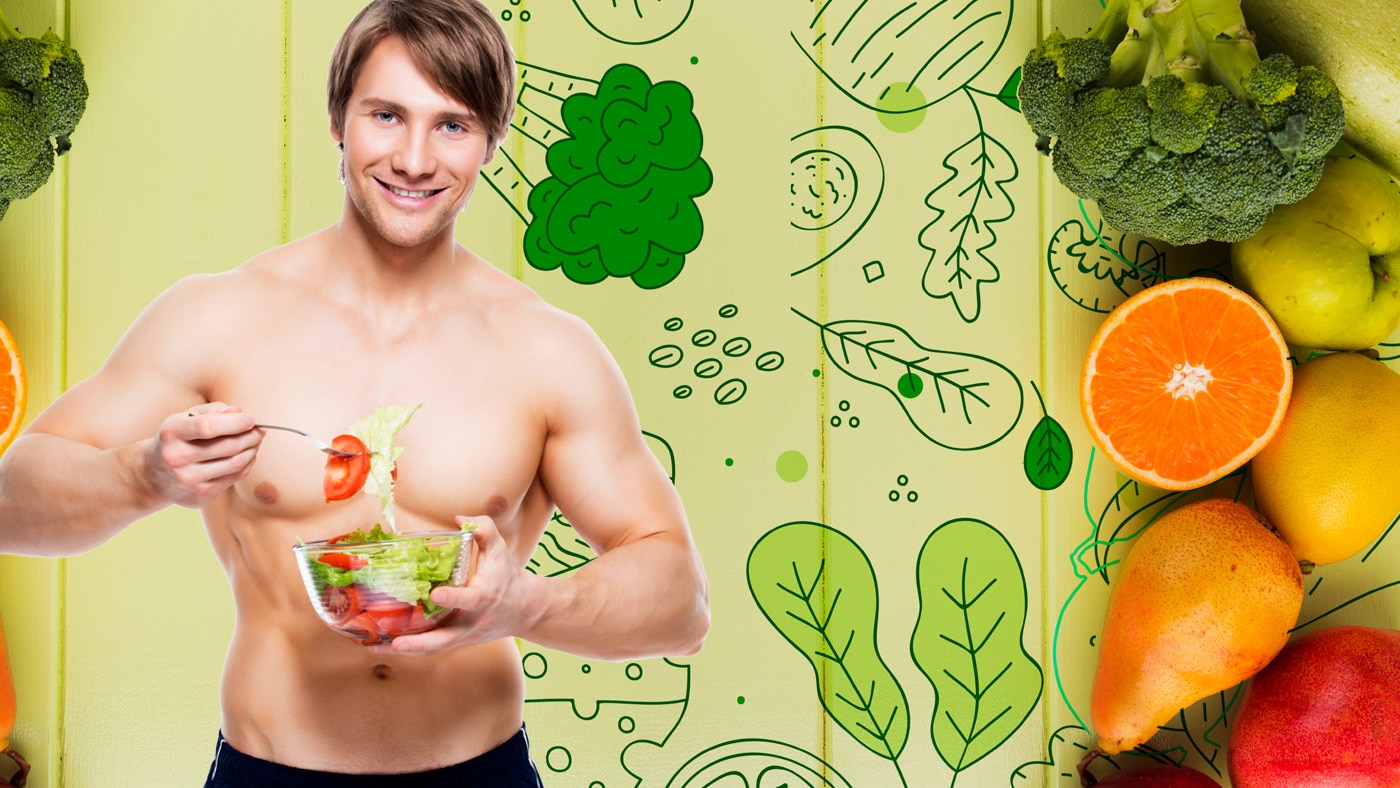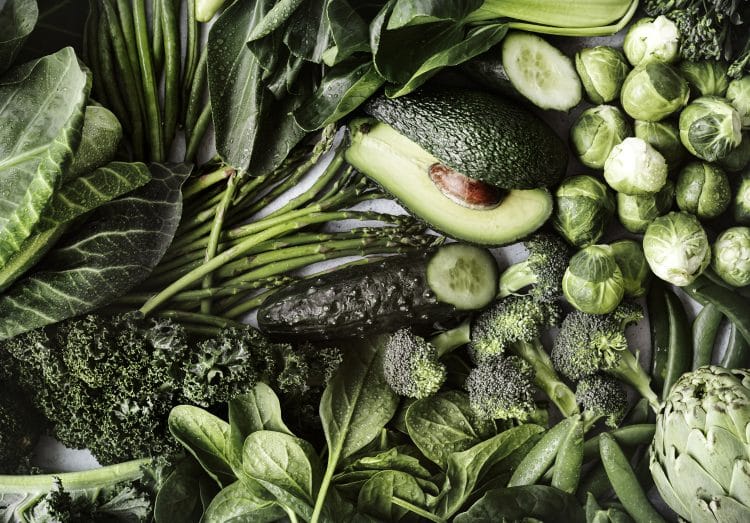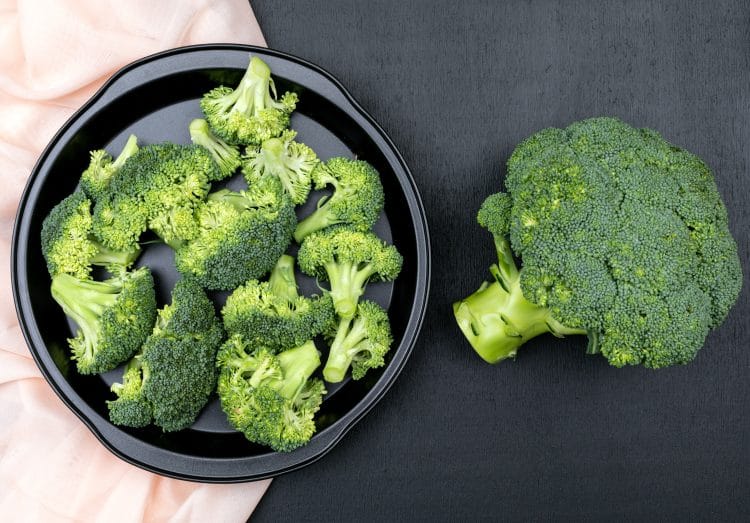In the bodybuilding world, vegetables are an underutilized nutrition source. While most lifters focus on eating meat, fish, and eggs to meet their daily protein needs, when it comes to the micronutrients, they call it a day after eating a couple of broccoli florets.
Contrary to what most lifters think, there is a vegetable out there for everyone – no matter your goal. There are enough vegan bodybuilders to prove that you could build a contest-winning physique on a plant-based diet.
While we do not recommend one diet over the other, we can certainly suggest a few veggies that can help achieve your physique goals.
If you are a vegan, vegetarian, or want to strike a balance between meat and veggies in your diet while working towards putting on muscle size; vegetables high in calories, carbohydrates, and protein are your best bet.
Benefits of Eating Vegetables
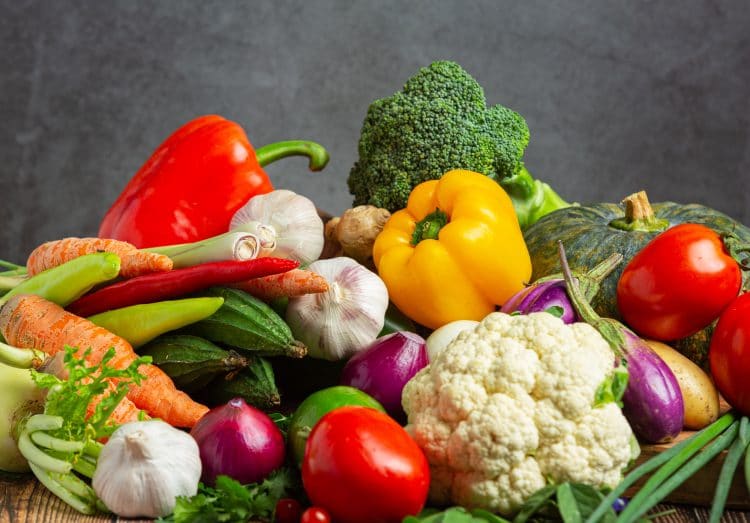
If your bodybuilding program is not getting the results you had hoped for, you should work on your diet and check if it is lacking in veggies. Low in calories, vegetables provide a host of nutrients that are otherwise deficient in many bodybuilding diets, including fiber, vitamins, minerals, and phytochemicals.
Here are five reasons why vegetables should be an indispensable part of your diet program:
1. Eat Vegetables For Building Muscle Mass
Some vegetables like broccoli, cauliflower, and cabbage have anti-estrogen properties due to a phytochemical they contain. This effect is a god-send for lifters as estrogen is kryptonite for bodybuilders.
The anti-estrogen properties of these green vegetables help fight body fat, minimize water retention and enhance testosterone levels.
Check Out: 8 Best Testosterone Boosters Ranked and Reviewed
2. Rich in Fiber
Most vegetables are high in fiber. Fiber is an indigestible carbohydrate that supplies no calories to your body but provides bulk which slows digestion.
Eating ample fiber has two benefits:
- Carbs enter your body more slowly that help hold your blood sugar level in check, keep your energy levels constant throughout the day, and avoid mid-day crashes.
- Fiber helps support the absorption of amino acids. It keeps your intestine walls clean, making them more efficient.
Must Read: Using Fiber To Your Advantage
3. Eat Vegetables To Get Lean
If you are on a cutting diet, you need to reduce your total calorie consumption while providing your body with enough food to feel satiated. Increasing your vegetable consumption can help solve these issues. While on a leaning program, you should increase your daily veggie intake to six cups a day.
When dieters cut out calories from their diet, they end up running short on essential vitamins and minerals. Eating six cups of vegetables daily ensures that you meet all your micronutrient needs. They will also keep you full so that you are less likely to eat foods you should not.
Next Read: TDEE Calculator: Calculate Your Total Daily Energy Expenditure
4. Abundant in Vitamins and Minerals
You might want to sit down for this one.
Doing nothing more than popping a multivitamin pill daily will not help you meet your micronutrient needs. Serious lifters require a hefty amount of vitamins and minerals and need a whole-food source like vegetables in their diet.
Veggies contain compounds that enhance the absorption of naturally occurring vitamins and minerals found within them. Also, these compounds increase the absorption of vitamins and minerals found in meats, grains, and even in supplements.
5. Adds Flavor To Your Meals
Unlike the bland chicken breast and egg whites, vegetables pack a solid punch of flavor. They are even better when you are looking to put on muscle mass during the offseason. You can pan-fry them in olive oil, add teriyaki sauce, grate some low-fat cheese on top or cover them in a low-fat salad dressing. Your diet will never be the same.
Related: 11 High-Calorie Low-Carb Foods to Include in Your Diet
Carbohydrates Rich Vegetables For Building Muscle
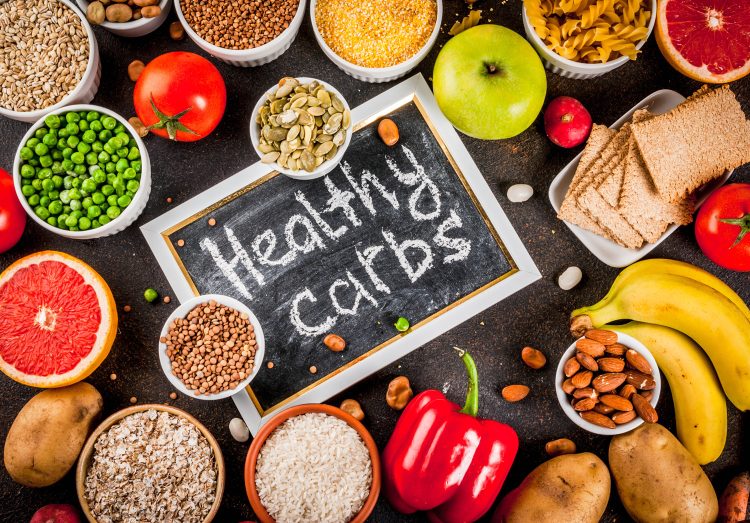
When gym-goers think about carbs, they usually visualize bread, rice, and pasta. Other sources of carbs include:
- vegetables
- fruits
- dairy
- nuts
- grains
- seeds
- legumes
- sugary foods and sweets
Vegetables are usually associated with people looking to shed extra kilos. Although some vegetables are rich in carbs (a macronutrient essential for bulking), you will hardly ever see a serious bodybuilder contemplating eating veggies for gaining size.
Next Read: Macronutrient Calculator: Count Your Macros Easily
Some weight-loss programs actively discourage eating carbs. The key is to find the right kind of carbs – and not completely avoid them. You can divide carbs into two categories – complex and simple.
Carbs consist of three components: fiber, starch, and sugar. Foods containing fiber and starch fall under the complex carbs category, and sugary food make up simple carbs. Depending on how much of each is found in a type of food determines its nutrient quality.
Veggies rich in complex carbs offer dense nutrition and benefits related to health and athletic performance.
Ask around your gym for the best carb veggies, and you will most probably find yourself amongst sweet potato and yam fangirls. These carb-rich veggies are filled to the brim with glycogen that makes them great pre-workout food.
Related: Which is Better Overall: White Potatoes or Sweet Potatoes?
Glycogen is used by your body to fuel any form of physical activity. Consuming glycogen-rich food before a workout allows you to train for longer without hitting a wall.
Complex carb-rich vegetables for building muscle include:
Check Out: How to Lose Weight Without Dieting – And Keep it Off!
Micronutrient-Dense Vegetables For Building Muscle
Contrary to what fitness newbies think, it is not just about eating enough carbs and protein. Pro athletes ensure they are eating an ample amount of vitamins, fiber, iron, and minerals for optimal functioning.
Not meeting your daily micronutrient goals can result in weak joints, bones, hair loss, constipation, constant fatigue, lack of concentration, and overall weakness.
Dark leafy vegetables are some of the most micronutrient-dense food sources. Some of the must-eat leafy green veggies include:
- Spinach
- Kale
- Fennel
- Watercress
- Collard greens
- Beet greens
Nitrate Rich Vegetables For Building Muscles
As more and more studies confirm the benefits of consuming nitrates before a workout, athletes are finding ways to incorporate them into their diets for better nitric-oxide production.
Benefits of nitric oxide, you ask?
Nitric oxide is involved in many cell processes, including the widening of blood vessels. Wider blood vessels help increase the delivery of nutrients and oxygen to working muscles during exercise, thus enhancing exercise performance.
The bodybuilding industry has also seen a rise in the popularity of nitric oxide supplements due to their muscle pump-inducing properties. These supplements also help with better muscle recruitment and stimulation.
Related: 16 Strongest Pre Workout Supplements for Hardcore Pump – Updated 2021
A study published in the European Journal of Clinical Nutrition found that athletes consume more nitrates than non-athletes. Nitrates are also linked to cardiovascular health benefits.
Some Nitrate-rich vegetables are:
Protein-Rich Vegetables For Building Muscle
We know you clicked on the article mainly for this section. You want to know how vegan and vegetarian athletes build muscle without eating slabs of meat every day.
Given below are vegetables that can be a protein-rich dish on their own, so put down your protein shake and take note. Here are some of the best protein-rich vegetables for building muscle:
1. Lentils
Beans are one of the most common and also an excellent source of plant-based protein. Each cup of cooked lentils contains about 18 grams of protein and 230 calories. Not only are they a great source of plant-based protein, but are perfect for people watching their weight.
On top of that, lentils are loaded with dietary fiber and contain a high amount of the micronutrients folate, thiamin, phosphorus, and iron. Their versatility makes them a great fit for a salad, soup, or even a protein-packed meat-free patty.
Check Out: 11 Best Protein Powders Without Artificial Sweeteners
2. Broccoli
You guessed it – broccoli is truly a superfood. You will find broccoli on almost every “good for you” vegetable list. Do you want a micronutrient-rich veggie? Broccoli has got you covered. A fat-free protein-rich green veggie? Broccoli is what you need. Low carb veggie? I think you get the idea.
One cup of the miniature tree-looking vegetable has 2.6 grams of protein. A cup of broccoli also packs over 100 percent of your daily need for vitamins C and K, something no animal-based protein can match.
3. Edamame
Edamame are immature soybeans that are boiled or steamed in a pod. They are usually served as a side dish but do not let their appearance fool you. A cup of the green beans contains 22 grams of protein.
A cup of edamame with your main protein dish can take you well over the recommended goal of 30 grams of protein per meal.
4. Pumpkin Seeds
An ounce of pumpkin seeds provides 5 grams of protein – more than half of the muscle-building macronutrient found in an egg. Roasted pumpkin seeds are also a great snacking alternative to chips.
Research has shown that diets rich in pumpkin seeds have been associated with lower levels of gastric, breast, lung, and colorectal cancer.
On top of that, the plant-based protein source is rich in antioxidants, which can help reduce oxidative stress and inflammation. The L-tryptophan in the seeds can also help you get a good night’s sleep. We are sure this information will make you think about what to do with the seeds after you have ground that gourd into a delicious pie.
5. Peas
This should not come as a surprise since most plant-based protein powders on the market are usually made of peas. A cup of peas contains around 9 grams of protein.
Peas are also rich in vitamin A, C, thiamin, phosphorous, and iron. A study found that the healthy dose of B vitamins and folate found in peas can help reduce the possibilities of heart diseases.
A serving of peas contains 5.5 grams of fiber. Not only are peas fast-absorbed by your body, but they also help with nutrient absorption throughout the day. They make for an incredible side dish, and you should add them to your salads, main protein meals, or pasta.
6. Mung Bean Sprouts
Mung bean sprouts are usually consumed as a side dish or a topping. One cup of cooked mung beans contains 2.5 grams of protein and is packed with nutrients like lecithin, which helps lower cholesterol, and zinc, which plays an important role in optimizing physical performance.
7. Asparagus
Now, this could come as a surprise. The diuretic nature of the green spears makes them a constant on most athletes’ dinner plates. It does not end here. 100 grams of asparagus contains 2.4 grams of protein. Asparagus is also a great source of vitamin K, potassium, and antioxidants.
So, what is your excuse for not eating asparagus today?
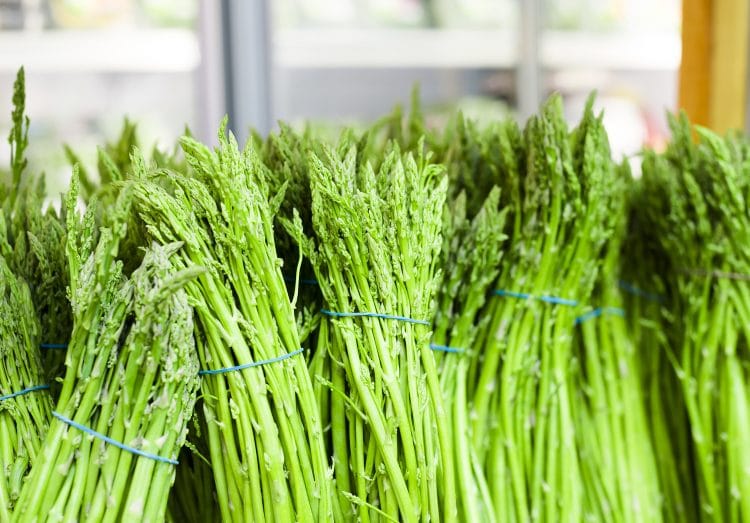
8. Soybean
Cooked soybeans contain about 28 grams of protein per cup – the most compared to any other bean variety. Protein in one cup of cooked soybeans also matches the amount of muscle-building macronutrient found in 150 grams of chicken.
Other than that, a serving of soybeans contains 17 grams of carbs and 15 grams of fats, 58 percent of which are essential fatty acids. According to research, the insoluble fiber in soybeans promotes digestive health, and unsaturated fat promotes cardiovascular health.
More importantly, soybeans are one of only two complete plant proteins, the other one being quinoa.
Soybean is one the best vegetables for building muscle, and you should absolutely eat your fair share every day if you are serious about your gains.
Best Vegetables For Workout Recovery
Many pros believe in the nutrient timing theory for athletes. The popular nutrition strategy involves the consumption of combinations of nutrients (primarily protein and carbohydrate) in and around an exercise session.
It is believed that food with particular macronutrient proportions can speed up muscle recovery after training. According to the International Society of Sports Nutrition, post-exercise consumption of carbohydrates encourages muscle recovery.
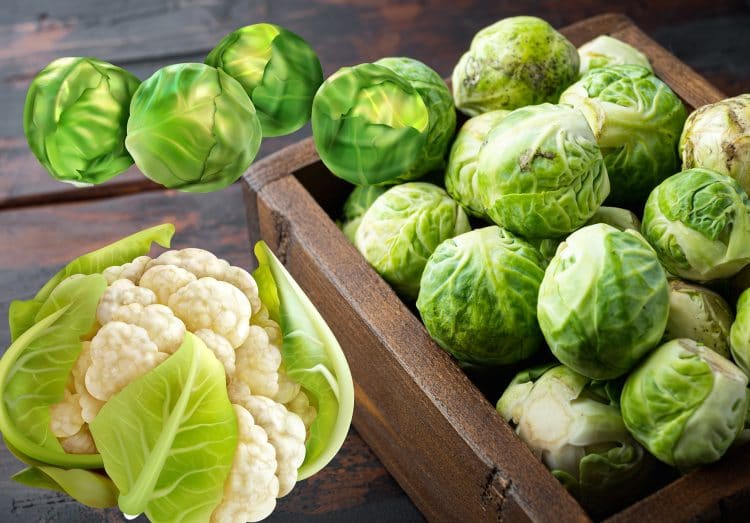
The combination of protein and carbs post-workout can prove to be even more effective. As per research, a post-workout meal consisting of carbohydrates and protein should be consumed immediately or up to two hours after exercise for optimal recovery.
Most plant-based protein sources contain both protein and carbs. Best post-workout vegetables for building muscle include:
- Brussels sprouts
- Cauliflower
- Bell pepper
- Green beans
- Sweet potatoes
- Green peas
Related: David Bautista Shares His Diet and Training Routine, Plans To Go Vegan
Conclusion
Most bodybuilders acknowledge the crucial role of vegetables in a bodybuilding diet, yet many do not eat enough of these nutritious foods. Believe it or not, not eating enough veggies can be hurting your gains.
Bodybuilding or not, to ensure a wholesome diet, you should be eating a variety of vegetables. Not only do vegetables make your meals taste delicious, but they also ensure you are meeting your daily micronutrient needs. Make the vegetables mentioned in the article a part of your daily diet to ensure overall physique development.
Tip: If you're signed in to Google, tap Follow.


